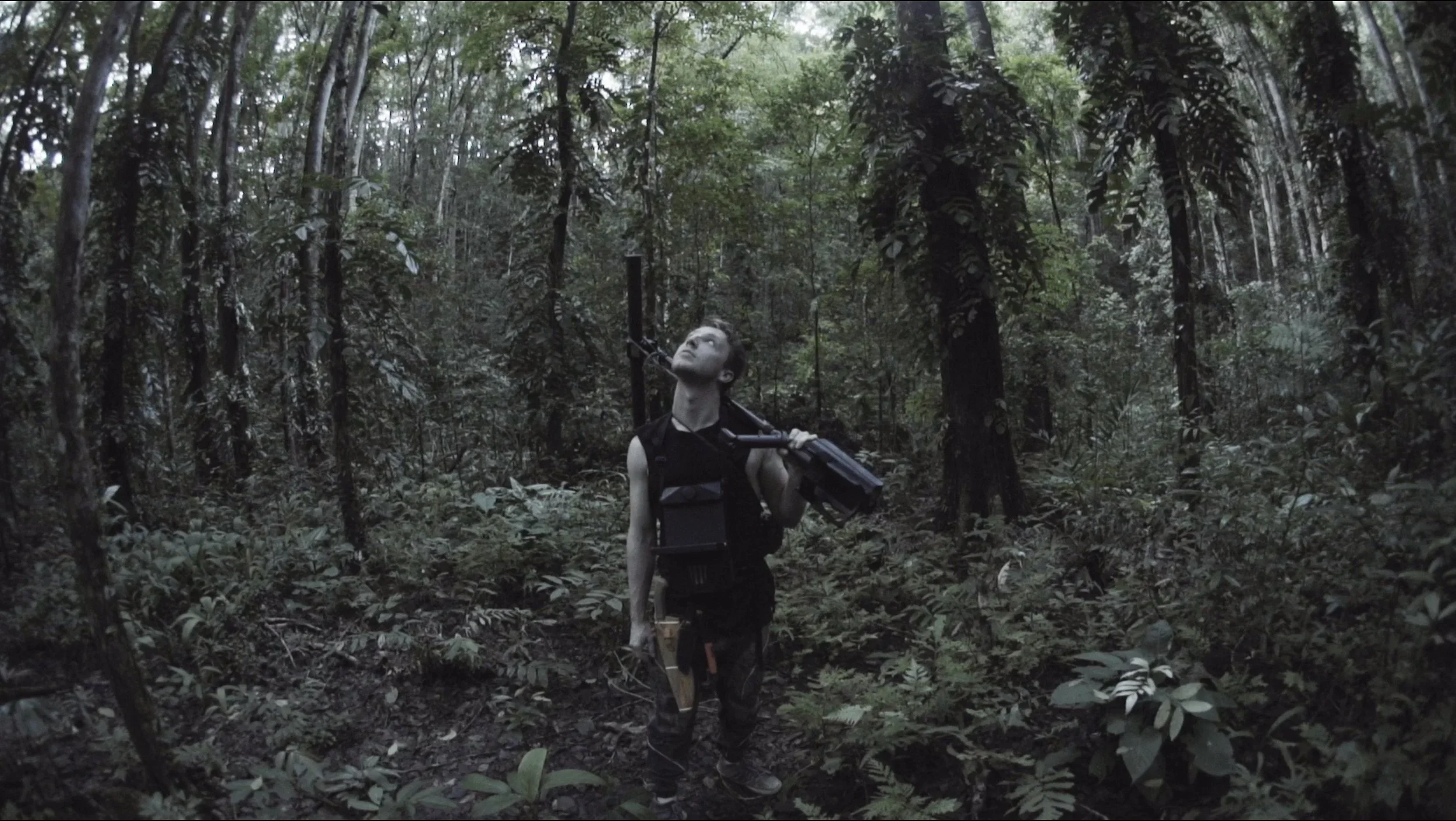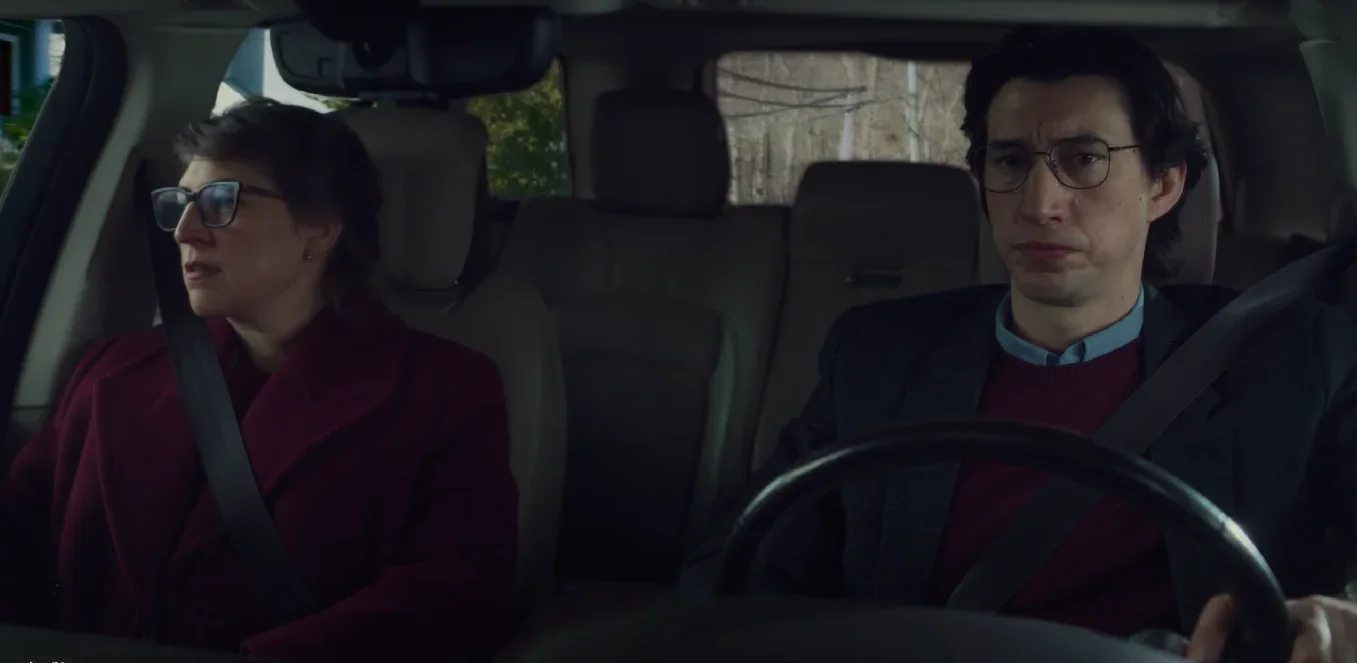‘Heretic’ REVIEW: Preying on Uncertainty
‘Heretic’ REVIEW: Preying on Uncertainty
Chloe East, Hugh Grant and Sophie Thatcher as Paxton, Reed and Barnes respectively | Still taken from IMDb
Religious themes and concepts of spirituality in general have been a goldmine for entries in horror and suspense for decades on end. A belief system that emphasizes faith in the face of the unknown mixed in with unpredictable genre thrills and trappings, as well as relevant social commentary, have given us plenty of classic chillers such as The Exorcist, Rosemary’s Baby, and Prince of Darkness, to name a few.
In an already potent year for the subgenre, with features such as Immaculate and The First Omen becoming hits with audiences, Scott Beck and Bryan Woods (A Quiet Place, Haunt, 65) throw in another entry into the canon with Heretic, a cerebral (and by some point literal) chamber piece that preys on the probing uncertainty that comes with believing your existence has a deeper meaning beyond yourself, and the possibility that you are wrong for doing so.
The film initially follows two Mormon missionaries Barnes (Sophie Thatcher, The Boogeyman) and Paxton (Chloe East, The Fabelmans), and their goal to open peoples’ minds and hearts to the Lord’s plans for their lives. It is easier said than done as they seem to have a difficult time in doing so when everyone else seems to either ignore or make fun of their words, and even they themselves are still trying to fully comprehend the nature of their faith (as shown in a unpredictably humorous opening conversation scene involving the marketing of condoms).
They strike gold however, when, in the middle of a rainstorm, they chance upon the house of one Mr. Reed (Hugh Grant, Notting Hill), a jovial man open to conversing with the missionaries and learning about their ideals. However, their brief exchange is rife with weird inconsistencies; where is the wife he keeps talking about? Why is he a bit too eager in learning about the reasonings of the missionaries’ faith? And why do the lights randomly turn off? Before they knew it, both Paxton and Barnes are entangled in a deadly game, with a man looking to find the one true religion, but not before attempting to destroy theirs first.
Hugh Grant as Reed | Still taken from the film’s official trailer on YouTube
Definitely no strangers to high concepts (with A Quiet Place and 65’s audio and time-based conceits), Beck and Woods’ screenplay is able to get a large amount of mileage out of a single location for most of the runtime, setting up and paying off tension on levels both physical and psychological effectively at the same time. The best stretches of the film occur in its dialogue-heavy, theology-based conflicts on the nature of human belief, the supposed history of religion, and how both continue to permeate on a macro and micro level both in popular culture and personal histories.
They are the foundation that the film further builds upon in escalation as Reed’s questions and tests begin to escalate into something more menacing. The manner in which the characters unravel and respond to these questions and situations are what gives the film its unnerving power equal to or more than the physical scenario they are in.
The direction the third act takes may feel unwieldy, and it doesn’t exactly thread the line of anxious ambiguity that made the prior acts so engaging, but what it reveals and implies about the true nature of the plot is still immensely harrowing in ways that go beyond just doubting the existence of a God, and makes its impact felt all the same.
While the themes the film tackles are undoubtedly dark in tone, it doesn’t mean that the whole thing is drenched in nihility and hopelessness. Woods brings up in an interview for Gizmodo that one of Heretic’s main influences is Robert Zemeckis’ 1997 sci-fi drama film Contact, and that it served as an interesting, yet rare template to tackle conversations on religion in a “popcorn context”.
With that in mind, Heretic does end up being the genre piece on religion that Beck and Woods conceptualized, executed with a deft, crowd-pleasing hand. Bursts of unexpected humor come in at the most inopportune moments (a bizarre metaphor leading to an impersonation of Star Wars’ Jar Jar Binks come to mind), plot turns come at a steady clip, and the ending firmly steeps its toes on a resonant plead of hope in the face of nothingness.
Chloe East and Sophie Thatcher as Paxton and Barnes respectively | Still taken from IMDb
The direction and cinematography from DP Chung Chung-hoon (Stoker, Lady Vengeance) are as graceful as they are subtle. The visual form might not be the most high-velocity, but how it creates coverages of visual space, through effectively placed angles and sweeping camera movement, further ground the film on a scene-to-scene basis, allowing the sense of escalation to come naturally. In contrast, the performances of the central cast are as passionate as they come, embodying the theological conflict in its various facets while still maintaining a human core.
Hugh Grant is as menacing and bombastic as the early buzz says he is, chewing the scenery in various minute-long monologues and using his signature charm to disarming effect. Sophie Thatcher’s steely determinism and Chloe East’s high-strung emotionality are also able to match Grant toe-to-toe in intensity, their chemistry with each other giving the most impactful scenes the gravitas they deserve.
Though not without its imperfections, Heretic’s confidence in its propensity for stacking tantalizing disquisitions and moments of primal terror on top of each other allows it to be a consistent thrill-ride from beginning to end, and a worthwhile investment to believe in.
Heretic is now showing on Philippine cinemas through Pioneer Films.










